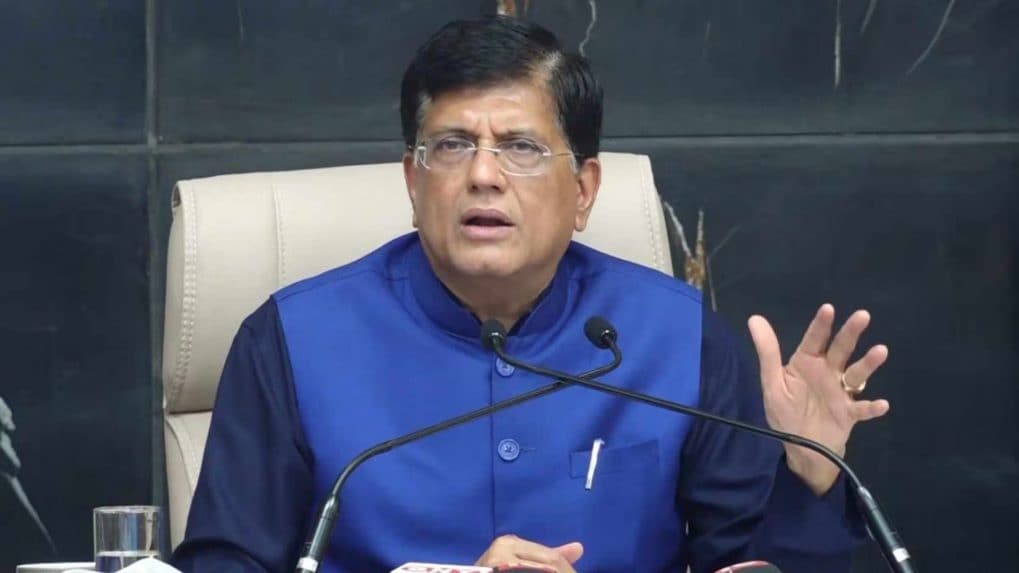Piyush Goyal calls for mandatory after-sales support as safeguard for consumers
Commerce Minister assured GST relief discussions, pitched stronger role for auto dealers in market growth and urged to promote swadeshi and made-in-India products.
ADVERTISEMENT
Commerce and Industry Minister Piyush Goyal on September 10 proposed a framework to ensure automobile companies exiting India are required to provide after-sales service and spare parts support for a fixed period, safeguarding consumers from being left in the lurch.
Speaking at an event organised by the Federation of Automobile Dealers Associations (FADA) in New Delhi, Goyal said dealers form the “front-facing sector” of the auto industry and are a vital bridge between companies and customers. “Consumers cannot be abandoned when a company winds up operations. We will look at a charter that makes after-sales service and spare parts availability mandatory for a defined period,” he said.
The Minister observed that there have been cases where companies set up operations in India, only to wind up and leave after some time, creating challenges for customers who had purchased their products. In such instances, the responsibility often falls on dealers to address consumer concerns. To prevent disruption and protect buyers, he suggested the creation of a framework or charter that would require all companies operating in India to commit to maintaining a local presence and providing after-sales support for a defined period before they are permitted to close operations. This, he emphasized, would ensure that customers are not left stranded and that the credibility and trustworthiness of the automobile sector are maintained.
Read more: Union Minister Piyush Goyal says GST cuts will boost jobs, growth despite US tariffs
He observed that India is negotiating Free Trade Agreements with several developed countries and attracting significant investment from global companies because of the size of the Indian market. While supporting domestic industry and manufacturers, he said there must also be fair competition, as competition improves efficiency, product quality, and consumer choice. He explained that growth in manufacturing will come when global companies test their products in the Indian market, leading to larger investments. The aim, he said, is to expand markets, strengthen supply chains, and build resilience, while ensuring domestic manufacturing remains strongly supported.
The Minister noted that the Government of India has undertaken significant and serious efforts to make it easier to do business in the country. This includes reducing unnecessary harassment, streamlining multiple government procedures, simplifying compliance requirements, and minimizing bureaucratic processes that can create obstacles for the sector.
He invited industry stakeholders to compile and submit suggestions at the central, state, and local levels on how business operations could be further facilitated. These suggestions could relate to reducing compliance burdens, simplifying existing laws such as the Motor Vehicles Act, or decriminalising minor offences that currently create hurdles for companies.
Goyal assured the sector that all recommendations would be carefully reviewed and taken up with the relevant authorities across government, with the aim of creating a smoother, more efficient, and more supportive business environment for the automobile industry.
He further highlighted that the government’s focus on promoting the growth of the automobile industry, creating more employment opportunities, and expanding the size and reach of the market. He noted that with ongoing Free Trade Agreements, India is expected to see a wider variety of cars, models, and global companies entering the market, providing consumers with greater choice and encouraging competition. The Minister emphasized that ensuring complete customer satisfaction ultimately rests with the sector itself, as dealers and manufacturers play a critical role in delivering quality products, services, and after-sales support. He assured the industry that the Ministry of Heavy Industries and the Department for Promotion of Industry and Internal Trade (DPIIT) remain fully committed to supporting the sector’s growth, helping it overcome challenges, and enabling it to achieve its full potential in India’s evolving market.
Read more: Piyush Goyal Interview: Union Minister says 'let’s all go for Swadesh'
The Minister urged the sector to promote swadeshi and made-in-India products, and to encourage consumers to prefer them. He said that by strengthening Indian suppliers of parts and auto components, the sector can reduce dependence on imports, build resilient supply chains, and make India more self-sufficient.
Concluding his remarks, he said that the automobile industry is at an inflection point, driven by aspirational Indians, and has the potential to take off strongly in the coming years.


